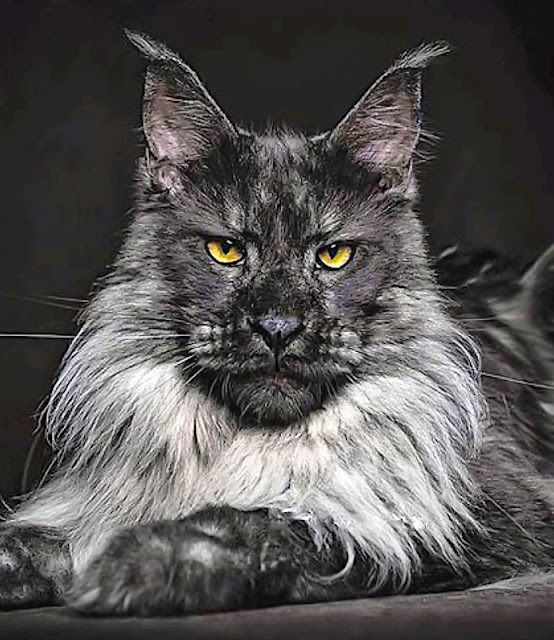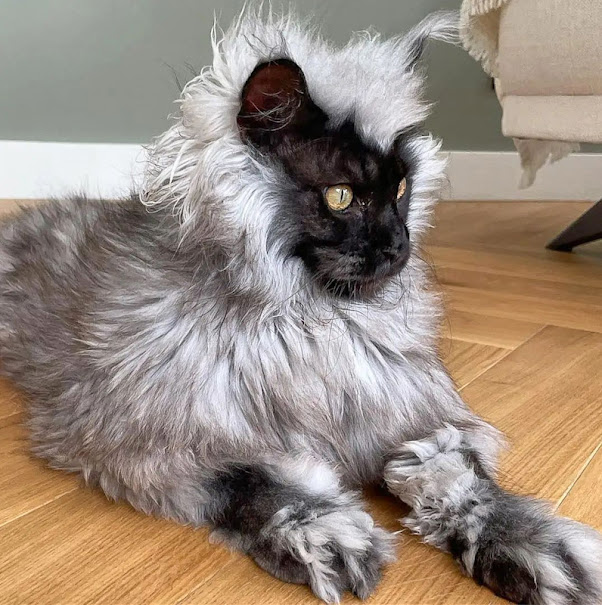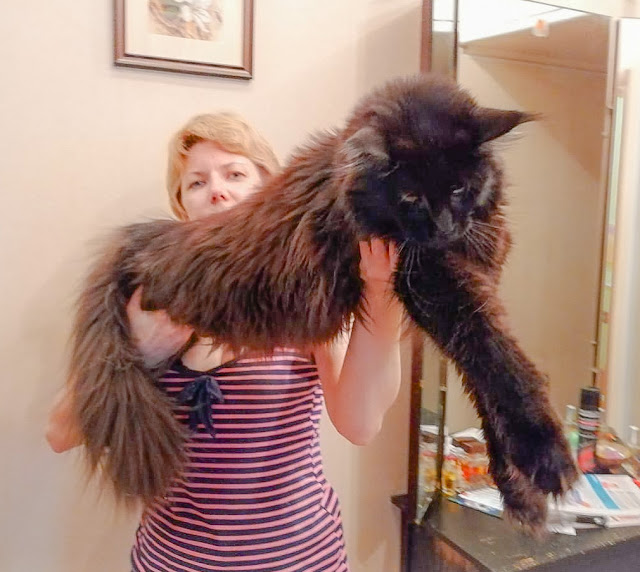Largest DNA-based study - info. on Pyruvate Kinase Deficiency in Maine Coons
A brand-new study published on June 16, 2022 which researched inherited diseases linked to a wide range of purebred cats and including non-pedigree cats, is proving useful. It is the largest DNA-based study of domestic cats to date according to the scientists. In all, 11,036 individual cat were genotyped. They included 10,419 pedigreed cats and 617 non-pedigreed cats.
 |
| DNA testing. Image: Pixabay. |
They were looking into the "distribution and frequency of known disease, blood type and physical trait associated genetic variance across cat breeds". I interpret this to mean that they were investigating inherited diseases in purebred cats and comparing that with non-purebred cats. I might oversimplify their stated objectives but it needs to be simplified.
However, I am able to, I hope, simplify it having read hundreds of studies over the years. I'm going to go over some inherited diseases concerning the Maine Coon cat as reported by this study which may interest cat breeders and cat owners alike. They have not reported on hip dysplasia and patella luxation in this report, both well-known inherited diseases in the Maine Coon.
I have focused on Pyruvate Kinase Deficiency as it is the most prevalent as reported by these scientists. Here is their list concerning the Maine Coon.
- Cystinuria Type B - prevalent ('derived allele prevalence') in 3 Maine Coon cat out of 1971 or 0.2%;
- Factor XII Deficiency - prevalent in 195 Maine Coon cats out of 1964 cats representing 9 .9%;
- Hypertrophic cardiomyopathy (HCM) - prevalent in 163 out of 1971 cats or 0.8%;
- Pyruvate Kinase Deficiency - prevalent in 280 cats out of 1955 cats representing 14.3%;
- Spinal Muscular Atrophy - found in 11 out of 1971 cats representing 0.6%;
There seems to be a relatively high or modestly high prevalence of Pyruvate Kinase Deficiency. So, what is it? It is a condition in which red blood cells break down faster than they should. It can lead to anaemia due to not enough red blood cells being present. It occurs in humans and people with this disease lead a healthy life.
It appears to be caused by a mutation in a gene this results in pyruvate kinase enzyme breaking down a chemical compound called adenosine triphosphate. Because the enzyme is deficient there is a lack of adenosine triphosphate which leads to dehydration of red blood cells and abnormal blood blood cells shapes resulting in a shortened lifespan leading to haemolytic anaemia in humans. I will take it that something similar if not identical occurs in cats.
The researchers stated that Factor XII Deficiency and Pyruvate Kinase Deficiency are widespread blood disorders in the cat population. Deficiencies have been documented in the following breeds: Himalayan, Maine Coon, Manx, Munchkin, Oriental Shorthair, Persian, Ragdoll, Siberian, and Siamese.
Interestingly, the researchers interviewed Maine Coon cat owners concerning this disease. All of the cats were 3 years old or younger at the time of the interview. In 30% of the owners, they reported "at least one mild potential episode with clinical signs such as lethargy, anorexia, weight loss and/or jaundice. One male Maine Coon, aged one year and 5 months, "became severely ill with anorexia, lethargy, and significant weight loss down to approximately 8 pounds from 17 pounds. Another male had episodes of mild lethargy and hyporexia.
Study title: Genetic epidemiology of blood type, disease and trait variants, and genome-wide genetic diversity in over 11,000 domestic cats published on: /journals.plos.org.










Comments
Post a Comment
Please share your Maine Coon experiences.